When it comes to our feline friends, ensuring their dietary safety is of paramount importance. Those who own cats frequently find themselves wondering whether a certain food item is safe for their pets. Goji berries are a prime example of a highly regarded superfood, renowned for its exceptional nutritional advantages. Do these benefits also apply to our feline friends? In this article, we explore the question of whether cats can safely consume goji berries without any negative impact on their well-being.
What Are Goji berries?
Native to Asia, goji berries, also referred to as wolfberries, are exquisite small red fruits. These berries are renowned for their delightful combination of sweetness and gentle tanginess. They are commonly dried and utilized in a variety of recipes, or enjoyed fresh and unadorned. Goji berries are renowned for their exceptional nutritional profile, brimming with an abundance of vitamins, minerals, and antioxidants. For centuries, traditional Chinese medicine has harnessed the power of these remedies, which are now garnering global recognition for their potential health benefits. From bolstering the immune system to enhancing eye health, their popularity continues to soar. Interestingly, these berries are not just consumed as food; they also play a role in traditional celebrations and rituals in some cultures.
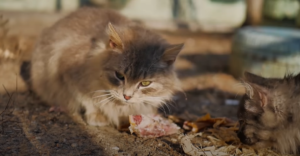
Can Cats have Goji Berries?
Cats, being obligate carnivores, have a dietary structure significantly different from ours. Their meals primarily consist of meat, and while they can occasionally eat some fruits and vegetables, not all are safe for them. Unfortunately, goji berries are among those fruits that cats should avoid. While goji berries are known for their nutritional value for humans, it’s important to note that they can cause digestive issues in cats due to their high fiber content. Moreover, their sugar content, albeit natural, can be too high for cats, who have evolved to consume a diet low in carbohydrates. Therefore, it is recommended to avoid including goji berries in your cat’s diet to minimize the risk of potential health problems. It is always advisable to seek guidance from a veterinarian when considering dietary modifications or if there are any uncertainties regarding specific food items. [1]
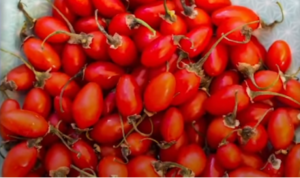
Can Cats Eat Dried Goji Berries?
As is the case with fresh goji berries, it is advised to avoid feeding dried goji berries to cats.
Therefore, to ensure the health and wellbeing of your cat, it’s best to exclude dried goji berries, along with fresh ones, from their diet. Always consult a vet before introducing new foods to your cat’s diet.
How Much Should You Give Your Cat and How Often?
Since goji berries have high fiber and sugar content, it’s best to avoid including them in your cat’s diet. This applies regardless of whether the goji berries are fresh or in a dried state. As obligate carnivores, cats require a diet rich in meat-based protein. Introducing high-carb foods like goji berries can disrupt their digestion and lead to health issues over time. Before introducing any new cat food, consult a veterinarian to ensure the best approach. They can provide you with the most accurate and tailored advice based on your cat’s specific health condition and dietary needs. [2]
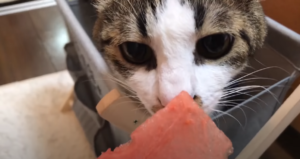
The Benefits of Feeding Goji Berries to Cats
While goji berries have several recognized health benefits for humans, these do not translate well for cats due to their distinct dietary needs as obligate carnivores. Feeding your cat goji berries can result in adverse health complications. To emphasize once again, goji berries can lead to digestive issues and an unhealthy diet for your cat due to their high fiber and sugar content. If you want to provide your cat with fruits or vegetables, consult your vet for safe options. Remember, while cats can enjoy a variety of foods, their primary diet should always consist of high-quality, protein-rich cat food appropriate for their age, size, and health status.
Goji Berries Feeding Tips for your Cats
Although it is well-known that goji berries are not suitable for a cat’s diet, it is crucial to have a comprehensive understanding of what to feed your feline companion. Cats require a balanced diet of proteins, taurine, vitamins, and minerals, typically found in quality commercial cat foods. If you wish to give your cat a treat, consider safe fruits like apples or blueberries, but always in moderation. Never give your cat food that contains chocolate, alcohol, caffeine, citrus, grapes, raisins, onions, garlic, or anything sweetened with xylitol, as these can be harmful to them. When introducing new food to your cat’s diet, do so gradually to avoid digestive upset. Always consult your vet before changing or introducing new foods to your cat’s diet. A proper diet tailored to your cat’s needs can ensure a healthy and happy life for your feline friend. [3]

Are Berries Dangerous for Cats?
Not all berries are dangerous for cats, but some can indeed pose serious health risks. Certain berries, such as blueberries or strawberries, can be a safe and nutritious treat for your cat. However, it’s important to note that others, like cherries or holly berries, can be toxic. Regarding goji berries, as mentioned earlier, they are non-toxic but may cause digestive problems due to their high fiber and sugar content. Remember, cats are obligate carnivores. Their bodies are designed to consume and digest meat, not fruits. Before introducing berries or other fruits to your cat’s diet, it is always advisable to consult with a veterinarian to prevent any potential health complications.
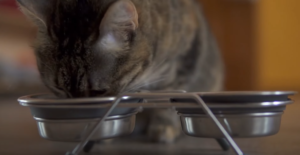
The Risks Associated with Giving your Cat Goji Berries
The potential hazards associated with feeding your cat goji berries primarily arise from their significant fiber and sugar levels. While these elements offer benefits to humans, they can pose challenges for our feline friends. To begin with, the abundant fiber content can potentially disrupt the digestive balance in cats, resulting in unpleasant symptoms such as diarrhea and vomiting. Furthermore, the presence of sugar in goji berries, despite being natural, can pose issues since cats are not biologically equipped to handle high-carbohydrate diets. Over time, this can result in weight gain and, in some cases, even increase the risk of developing diabetes. Additionally, the size and shape of goji berries may pose a choking risk, particularly if your cat is not accustomed to consuming such foods. Lastly, while not a direct health risk, the feeding of goji berries can encourage a taste for sweet foods, which can make it harder to maintain a healthy, balanced diet for your cat. For optimal cat nutrition, it is advisable to adhere to your vet’s recommended food choices and steer clear of potential risks associated with feeding goji berries to your feline companion. [4]
FAQ
What berries are toxic to cats?
Some berries can be highly toxic to cats and should be avoided. These include yew berries, mistletoe berries, holly berries, and pokeweed berries. It is crucial to understand that cherries can be toxic to cats, primarily because their stems, leaves, and seeds contain cyanide. While the flesh of the cherry itself may not be toxic, it’s often too risky to allow your cat to eat cherries, in case they ingest these toxic parts. Refrain from offering your feline companion any of these berries or any food that may potentially include them. If you have reason to believe that your cat has consumed any of these poisonous berries, it is crucial to promptly seek veterinary assistance. Remember, while some berries are safe for cats in moderation, their diet should primarily be high-quality, protein-rich cat food. Cats are carnivores and cannot process large amounts of fruits or berries.
Who Cannot eat goji berry?
While Goji berries are generally safe for most individuals, it’s important to note that they may not be suitable for everyone. Those allergic to this fruit or other fruits may have adverse reactions. People taking medication for blood thinning, blood pressure, or diabetes should avoid goji berries as they may interact and affect the efficacy of these medications. Pregnant and breastfeeding women should exercise caution and consult a healthcare professional before consuming goji berries. Lastly, as mentioned earlier, cats and other pets should not eat goji berries because they have too much fiber and sugar, which isn’t suitable for their diet. Always consult a healthcare professional or veterinarian before making any dietary changes for you or your pets. Safety first!
What dry fruits can cats eat?
Cats can eat some dried fruits in small amounts but it shouldn’t be a major part of their diet. These include dried apples, bananas, and blueberries, which can be given as occasional treats. It is of utmost importance to ensure the removal of any seeds or pits, as they can pose a potential choking hazard. Avoid dried fruits that are sweetened with additional sugars or seasonings. Despite these options, remember that cats are obligate carnivores and do not require fruits in their diet. Therefore, dried fruits should never replace high-quality, protein-rich cat food. Always consult your vet before introducing new foods to your cat to ensure they are safe and suitable.
Are cats allergic to goji berries?
Like any other food, goji berries can cause allergies in some cats. Allergic reactions can range from mild to severe, often manifesting as skin irritations, gastrointestinal upset, or in severe cases, anaphylaxis. Nevertheless, it is uncommon for cats to have a specific allergy to goji berries. In the majority of instances, when a cat exhibits adverse symptoms following the ingestion of goji berries, it is typically attributed to the fruit’s elevated fiber and sugar content, which their bodies may struggle to process, rather than an authentic allergic reaction. It is always advisable to seek guidance from your veterinarian before introducing any new food to your feline companion’s diet. Overall, it’s best to avoid giving goji berries to your cat and stick to a diet recommended by a professional for their optimal health and well-being. Remember, safety first when it comes to your feline friend’s diet!
Is it OK to eat dried goji berries?
Yes, it is perfectly safe for humans to consume dried goji berries. These fruits are abundant in vitamins, minerals, and antioxidants, making them a staple in traditional Chinese medicine for their multitude of health benefits. They can be enjoyed on their own as a snack or added to various dishes such as salads, smoothies, and oatmeal for an extra nutritional boost. Nevertheless, like any food, it is important to consume them in moderation. Excessive intake can result in digestive discomfort due to their high fiber content. Additionally, individuals with specific health conditions or those taking certain medications like blood thinners should seek advice from a healthcare professional before incorporating goji berries into their diet.
What fruits cats Cannot eat?
Cats should avoid certain fruits due to their toxicity or potential to cause digestive upset. These include grapes and raisins, which can lead to kidney failure in some cases. Citrus fruits, such as lemons, limes, grapefruits, and oranges, can cause upset stomachs. Persimmons are problematic due to their seeds, which can cause intestinal blockage or inflammation. Avocado contains a toxin called persin which can cause vomiting and diarrhea in cats. Finally, as previously mentioned, cherries can be dangerous due to the cyanide in their stems, leaves, and seeds. While cats might show interest in these fruits, it’s important to remember that they are obligate carnivores and their bodies are not designed to process large amounts of fruit. It is always advisable to seek guidance from your veterinarian before introducing any new foods into your cat’s diet.
Are berries OK for cats?
Certain berries, such as blueberries and strawberries, are generally safe for cats to consume in limited quantities. These fruits are safe for consumption and can be enjoyed as an occasional indulgence, rather than a dietary necessity. However, it’s crucial to remember that cats are obligate carnivores, and their primary dietary needs are best met through high-quality, protein-rich cat food. Other berries, like cherries, holly berries, and yew berries, are toxic to cats and should be strictly avoided. Even safe berries should be given sparingly due to their high sugar content, which cats struggle to digest effectively. Before introducing any new food into your cat’s diet, it is crucial to consult a veterinarian to ensure the safety and well-being of your beloved pet. Observe your cat’s reaction to new food items, as individual cats can have different tolerance levels and allergies.
What fruit is cat safe?
Several fruits are generally considered safe for cats to consume in moderation. Apples, bananas, and blueberries are among the fruits that can be offered as an occasional treat. Pears, peaches, and melons can also be offered, but remember to remove any seeds or pits, as they can cause choking or other health issues. However, it’s important to stress that fruits should never be a significant part of a cat’s diet, as they are obligate carnivores and require a diet primarily consisting of meat. Any new food item should be introduced gradually and under the close supervision of a vet. Always observe your cat’s reactions to new foods, as individual tolerance or allergies can vary.
Is Goji bad for liver?
Goji berries are generally not harmful to the liver. Some studies suggest that the antioxidants found in goji berries could potentially benefit liver health. Excessive goji berry consumption, like any other food, can potentially cause issues due to their high fiber content. It’s also important to note that while goji berries are generally safe for human consumption, they might not be safe for all animals. For instance, as mentioned earlier, it’s best to avoid giving goji berries to cats. As always, it’s wise to consult with a healthcare professional before making any major changes to your diet, particularly if you have an existing health condition or are currently taking medication.
Is goji berry bad for kidney?
Goji berries are generally regarded as safe for human kidney health, and there is even evidence to suggest that they offer potential benefits due to their abundance of antioxidants. However, like any other food, they should be consumed in moderation. Overconsumption may lead to potential issues such as digestive discomfort due to their high fiber content. Furthermore, individuals who have kidney disease or other health conditions, or those taking certain medications, should consult a healthcare professional before incorporating goji berries into their diet. It’s also crucial to remember that while safe for human consumption, goji berries are not advisable for certain pets, like cats, due to their digestive systems not being equipped to handle such foods.
Useful Video: The BEST FRUIT for CATS – Feeding Guide & Benefits
Conclusion
To conclude, while goji berries may provide numerous health benefits for humans, they are not suitable for consumption by cats. A cat’s dietary needs are distinct from those of humans. As obligate carnivores, cats thrive on a diet primarily consisting of high-quality, protein-rich cat food. Certain fruits, such as blueberries and strawberries, may serve as occasional treats for cats. However, it is crucial to remember that fruits should never form a substantial part of a cat’s diet. Before introducing any new food to your cat’s diet, it’s always wise to consult with a veterinarian. Additionally, closely monitoring your cat’s reactions to new foods is crucial to ensure their overall well-being and health.
References:
- https://cattime.com/cat-facts/health/44174-can-cats-eat-goji-berries-safe
- https://micatguide.com/can-cats-eat-goji-berries/
- https://learnaboutcat.com/can-cats-eat-goji-berries/
- https://kittentoob.com/cats-eat-goji-berries/

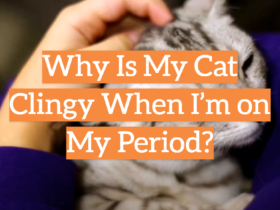





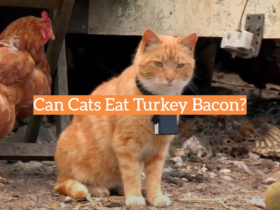


Leave a Reply